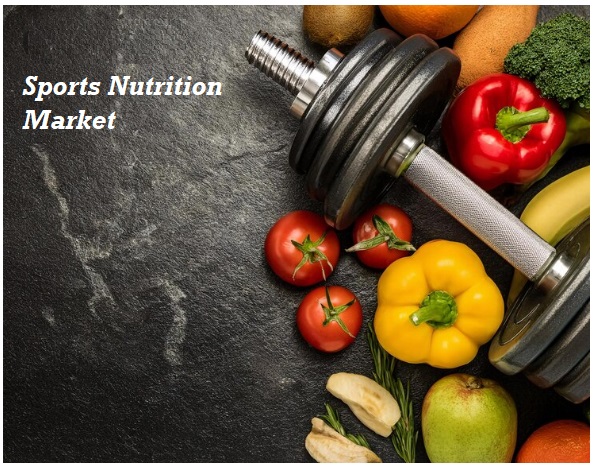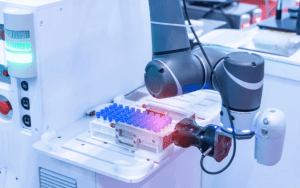
The Sports Nutrition Market was valued at $43.38 million in 2023. This market is expected to reach $82.35 million by 2031 from an estimated $46.99 million in 2024, at a CAGR of 8.3% during the forecast period from 2024 to 2031.
The global sports nutrition market has witnessed remarkable growth, fueled by an increase in health-conscious consumers, the rise in gym-goers, and a strong focus on preventive health due to the growing prevalence of chronic diseases. Coupled with the rising number of product launches, increasing health expenditures, and the shift toward plant-based options, the sports nutrition industry has transformed into a dynamic, fast-growing sector. However, challenges like high product costs and complex regulatory requirements present hurdles that brands and manufacturers need to navigate.
Download Sample Copy: https://www.meticulousresearch.com/download-sample-report/cp_id=6023
Key Drivers and Challenges
Several factors are driving growth in the sports nutrition market:
- Product Innovation and Launches: With consumers seeking products tailored to their specific dietary and performance needs, brands are continually innovating, introducing new flavors, plant-based options, and formulations. These innovations are broadening consumer appeal, allowing companies to capture a diverse range of health-focused individuals.
- Rising Fitness Culture: As the gym-going population grows, so does the demand for sports nutrition products that enhance performance, aid in recovery, and support general health. This trend is particularly strong among millennials and Gen Z, who are adopting active lifestyles and prioritizing wellness.
- Chronic Disease Awareness: Increasing rates of chronic conditions, such as diabetes and cardiovascular diseases, are steering consumers towards health products that can supplement traditional diets. Sports nutrition products rich in essential nutrients and designed for fitness support appeal strongly to this audience.
While these trends are pushing the market forward, several constraints are worth noting. High product prices, due to quality ingredients and complex manufacturing processes, can limit accessibility. Furthermore, regulatory complexities related to claims and labeling are challenging for manufacturers who need to navigate varying regulations across regions.
Emerging Opportunities
Despite challenges, the sports nutrition market is ripe with opportunities:
- Demand for Plant-Based Options: There is a growing shift towards plant-based nutrition, driven by sustainability and health-consciousness. Consumers are seeking plant-based proteins, such as pea or soy, as alternatives to traditional whey. This demand is creating space for companies to expand their product portfolios.
- Influencer Marketing and Online Retail: Social media influencers and fitness advocates play a vital role in promoting sports nutrition products, making them appealing to the younger, tech-savvy demographic. Combined with the rise of online retail platforms, consumers can easily access a wide range of products, which has fueled market growth further.
- Clean-Label Products: There is an increasing preference for clean-label products that exclude artificial ingredients and additives. Consumers are more informed about what they consume and tend to favor products that provide transparency in their ingredient lists and sourcing.
Get Customized Report: https://www.meticulousresearch.com/request-customization/cp_id=6023
Key Market Segments
The sports nutrition market can be divided based on type, end-user, and distribution channel.
- By Type: Sports supplements, comprising protein powders, amino acids, and energy bars, represent a major segment. Expected to capture over 41.5% of the market share in 2024, these supplements are particularly popular among athletes and fitness enthusiasts for their muscle-building and performance-enhancing benefits.
- By Formulation: Powdered supplements hold the largest share due to their long shelf life, ease of handling, and stable ingredient profile. Protein powders are especially prevalent, allowing consumers to customize servings and enhance their nutrient intake by mixing with other ingredients.
- By End User: Athletes are the primary consumers, as they seek specialized nutrition to optimize their performance and recovery. Elite athletes and gym-goers require consistent energy, faster recovery, and muscle repair, which specialized sports nutrition products help facilitate.
- By Distribution Channel: Off-trade channels, including specialty sports retailers and e-commerce platforms, are anticipated to dominate with a substantial market share. Online retail’s ease and affordability have significantly contributed to this growth, alongside the convenience of home delivery and vast product options.
Regional Insights
The regional analysis highlights the prominence of North America, which is forecasted to hold the largest share—54%—of the sports nutrition market by 2024, with a market valuation of USD 25.99 billion. The robust growth in this region can be attributed to several factors, including a high prevalence of health-conscious consumers, increasing gym memberships, and the presence of major industry players. Additionally, the awareness surrounding physical activity and its role in preventing chronic conditions contributes to North America’s leading position.
Asia-Pacific is also emerging as a strong market, with countries like China, India, and Japan experiencing rising health consciousness and disposable incomes. Europe, another key market, shows a significant trend towards natural and clean-label products, appealing to the growing segment of environmentally-conscious consumers.
Competitive Landscape
The sports nutrition market is characterized by a mix of large and small players striving for market share through product innovation, strategic partnerships, and regional expansions. Key players include: Nestlé S.A (Switzerland), Iovate Health Sciences International Inc. (Canada), MusclePharm (U.S.), Abbott Laboratories Inc. (U.S.), GNC Holdings, LLC (U.S.), The Coca-Cola Company (U.S.), Arla Foods Ingredients Group P/S (Denmark), Glanbia PLC (Ireland), Clif Bar & Company (U.S.), PepsiCo Inc. (U.S.), Otsuka Holdings Co., Ltd. (Japan), Post Holdings, Inc. (U.S.), Cardiff Sports Nutrition (U.K.), Quest Nutrition (U.S.), BioTech USA Kft. (U.S.), and Ultimate Nutrition Inc. (U.S.).
These companies are leveraging innovations in formulations, plant-based alternatives, and influencer collaborations to strengthen brand loyalty and expand their customer bases. Moreover, mergers and acquisitions, such as PepsiCo’s acquisition of Gatorade, signify strategic moves to capture niche markets and enhance product portfolios.
Buy Now: https://www.meticulousresearch.com/Checkout/49612978
Conclusion
With evolving consumer preferences towards active lifestyles and preventive health, the sports nutrition market is poised for substantial growth. Key trends, such as plant-based options, influencer-driven marketing, and the demand for clean-label products, underscore the market’s potential. However, market players must also navigate challenges like high pricing and regulatory hurdles to achieve sustained success. As this sector grows, companies that align their offerings with emerging health trends and prioritize transparency are well-positioned to lead in the competitive sports nutrition landscape.
Mr. Khushal Bombe
Meticulous Market Research Inc.
1267 Willis St, Ste 200 Redding,
California, 96001, U.S.
USA: +1-646-781-8004
Europe : +44-203-868-8738
APAC: +91 744-7780008
Email- sales@meticulousresearch.com
Visit Our Website: https://www.meticulousresearch.com/
Connect with us on LinkedIn- https://www.linkedin.com/company/meticulous-research
About Post Author
Meticulous Research
 Next post
Unpacking the Natural Flavors Market: Key Trends, Growth Drivers, and Global Opportunities
Next post
Unpacking the Natural Flavors Market: Key Trends, Growth Drivers, and Global Opportunities






